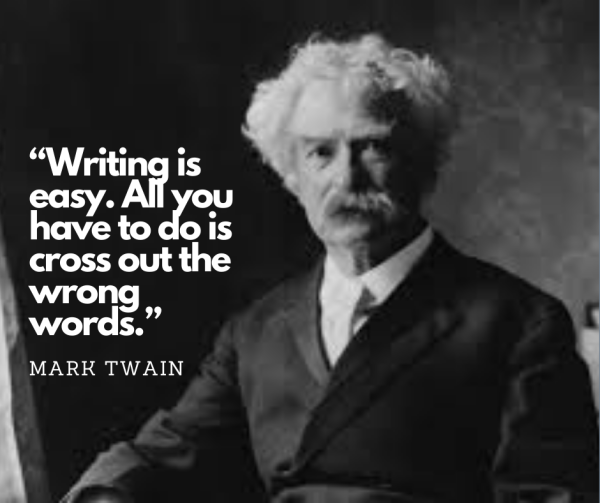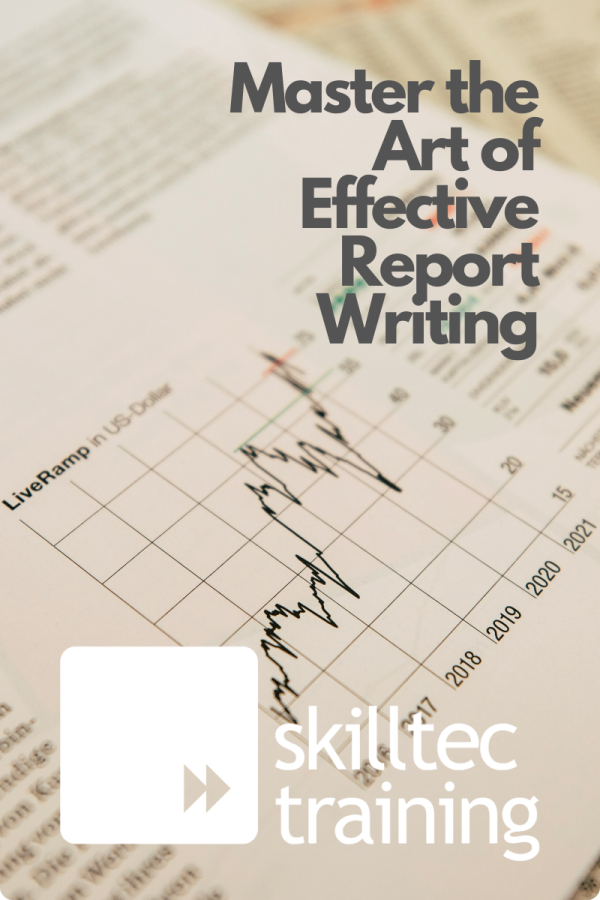The Power of Words: Mastering Report Writing
"Writing is thinking. To write well is to think clearly. That's why it's so hard." – David McCullough
In today's fast-paced business environment, the ability to write clear, concise, and effective reports is more important than ever. Whether you're new to report writing or already have the basic skills, mastering this essential business task can significantly enhance your professional value and career prospects.
Why Report Writing Matters
Reports are fundamental tools in business, serving as a means to communicate information, make decisions, and drive actions. They help in documenting processes, analysing data, and providing insights that are crucial for strategic planning. Effective report writing ensures that the message is conveyed accurately and persuasively - a decisive factor in achieving business objectives.
Mastering the art of report writing is an essential skill for any professional. It not only enhances your ability to communicate effectively, but also boosts your career prospects and contributes to the success of your organisation. By investing in report writing training, you can ensure that your reports are clear, concise, and impactful.
Good reports can influence decisions, shape policies, and even determine the success of projects. They are essential for maintaining transparency, accountability, and informed decision-making within an organisation. Therefore, investing time and effort in developing strong report-writing skills is a worthwhile endeavour.
The Basics of Report Writing
Understanding the fundamentals of writing reports is the first step towards mastery. Research and a clear vision are critical before writing a report; thorough research ensures accuracy and credibility, while a clear vision guides the structure and focus, making your report compelling and coherent.
A well-structured report typically includes the following elements:
-
Title Page: The title of the report, the author's name, and the date of submission. Add in an image that conveys the subject if suitable
-
Table of Contents: An organised list of the report's sections and sub-sections.
-
Executive Summary/ TLDR (too long, didn’t read!): A brief overview of the report's contents, highlighting the main points, conclusions, and recommendations.
-
Introduction: An explanation of the report's purpose, scope, and background information.
-
Body: The main content of the report, divided into sections and sub-sections, presenting data, analysis, and findings.
-
Conclusion: A summary of the findings, conclusions drawn from the analysis, and any recommendations.
-
Appendices: Supplementary material such as charts, graphs, and raw data that support the report.
Top Tips for Effective Report Writing
To write reports that are clear, concise, and impactful, consider the following tips:
-
Understand Your Audience: Tailor your language, tone, and content to the needs and expectations of your audience.
-
Be Clear and Concise: Avoid jargon and complex sentences. Aim for simplicity and clarity in your writing.
-
Use Visuals Wisely: Incorporate charts, graphs, and tables to illustrate key points and make data more accessible.
-
Stay Objective: Maintain a neutral tone and support your arguments with evidence.
-
Edit and Proofread: Review your report for grammar, punctuation, and spelling errors. Ensure that the content flows logically and is free of inconsistencies.
The Advantages of Report Writing Training
Formal training offers several advantages, beyond fast-tracking your ability to write compelling reports. Training courses provide structured learning, expert guidance, and practical exercises that can significantly enhance your skills. Here are some benefits of enrolling in a report writing course:
-
Structured Learning: Courses offer a step-by-step approach to mastering report writing, covering all essential elements and techniques.
-
Expert Guidance: Experienced instructors provide valuable insights, feedback, and tips that take years of experience otherwise.
-
Practical Exercises: Hands-on activities and real-world scenarios help you apply what you've learned and gain confidence in your writing abilities.
-
Peer Learning: Interacting with fellow learners allows you to share experiences, learn from others, and gain different perspectives.
-
Certification: Completing a training course can enhance your resume and demonstrate your commitment to professional development.

Why Choose Skilltec for Your Report Writing Training?
At Skilltec, we understand the importance of effective communication in the business world. Our report writing training course is designed to equip you with the skills needed to create professional, high-quality reports that make an impact. Our highly skilled instructors bring a wealth of experience and expertise, ensuring that you receive the best possible training.
" Very informative and very useful course - great trainer, who made me feel very welcome. Thank you” Louise at South West Water
Our one day, course led by our highly experienced instructor (usually in a virtual classroom for your convenience) covers all aspects of report writing, from understanding the basics to mastering persuasive language. You'll learn everything you need to know to master report writing; how to structure your reports, present data effectively, and write with clarity and precision. It’s an interactive session with real-world examples and the ability for you to work with the type of reports that are relevant to your work. And, with our comprehensive post-course support, you'll have the resources and guidance you need to continue improving your skills long after the training ends.
For more information about our report writing training course, get in touch.



